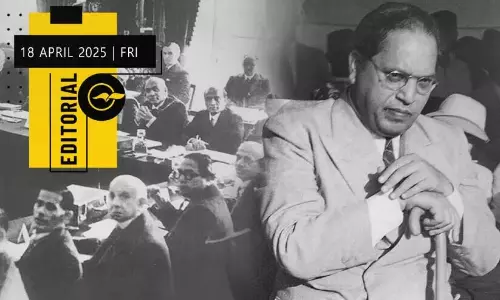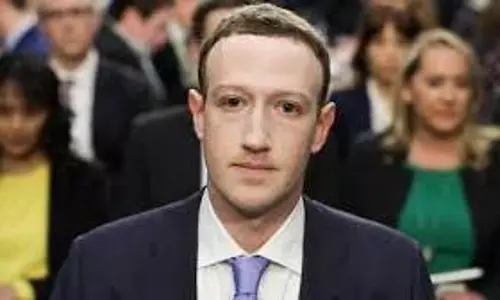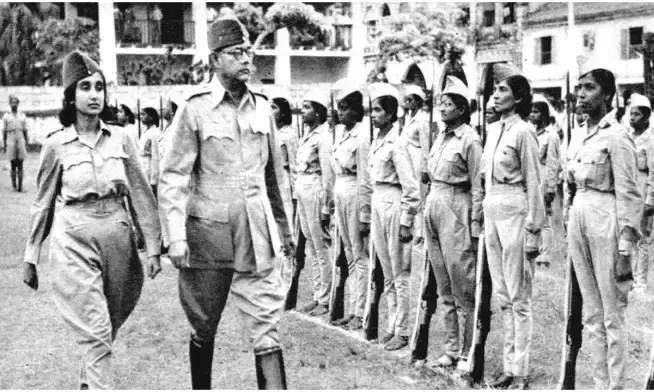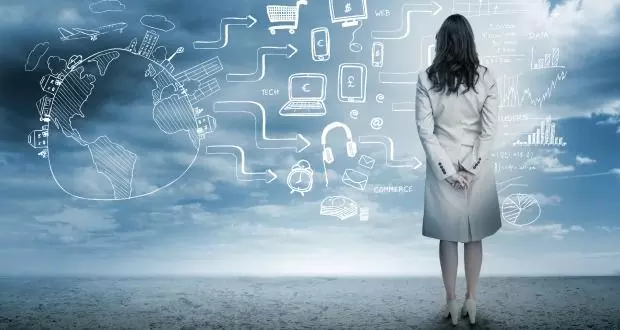
Women's Day: Building a digitally equal world
text_fieldsMarch 8 is celebrated by the global community as ‘International Women’s Day’. The theme chosen by the United Nations on the occasion is ‘DigitALL: Innovation and Technology for Gender Equality’. From the era of knowledge-based societies to the present age of virtual reality and artificial intelligence, women have rendered untold and impressive contributions to the digital world. However, it remains a fact that gender gaps and prejudices have substantially deprived them of digital access.
Innovation and technology must mix like oil and water. The development of technology must be met with an equal improvement in the law. Vinton G. Cerf, one of the ‘fathers of the Internet’ once asserted: Though the Internet is important; it is only an enabler of rights and not a right in itself. The unwelcoming societal attitudes and cyber violence have dissuaded women from unlocking technology’s full potential. They are being virtually driven out of the digital space, though the digital age has an unprecedented opportunity to eliminate all forms of gender disparity and inequality. It is noticed that there is an inadequate representation of women in technological design and governance.
Gender Equality
Gender equality is a fundamental human right. It is also the keystone of a prosperous, modern economy that provides sustainable inclusive growth. It is the beacon of rule of law and it shines always. Gender equality is essential for ensuring that men and women can contribute equally and fully to the betterment of societies and economies, at large. For this, women should be given full economic and social participation to reduce the gender gap.
Today digital transformation provides new avenues for the economic empowerment of women and can contribute to greater gender equality. The Internet, digital platforms, mobile phones and digital financial services offer “leapfrog” opportunities for all and can help bridge the divide by giving women the possibility to earn additional income, increase their employment opportunities, and access knowledge and general information. However, the long road ahead is clearly an uphill task for women.
Let us remember here the question once raised by Eleanor Roosevelt, the American political diplomat. “Where do universal human rights begin? In small places, close to home-so small that it cannot be seen on maps of the world. Unless they have meaning there, they may not have meaning elsewhere. Concerted citizen action to uphold them close to home is required, failing which, we shall look in vain for progress in the larger world”.
Horrifying Discrimination
Gender discrimination based on intrinsic biological differences between men and women threatens both human dignity and the development of persons and societies. Why should you discriminate against women in cyberspace, public service, education and in employment? Lord Denning in his treatise ‘Due Process of Law’ canvasses the proposition that a woman feels as keenly, thinks as clearly, as a man. She, in her sphere, does work as useful as man does in his. She has as much right to her freedom, as to develop her personality to the full as in the case of a man.
We cannot dogmatize or universalize the principle that men and women are equal in all occupations and situations. However, we need not wait for gender charity to hold that, if a man has a right, a woman also has the same right, other things being equal. Our struggle for national freedom was also a battle against women’s thraldom. If the Government as the surrogate of the Legislature makes rules allergic to gender parity, such rules cannot be sustained.
The declarations of the Indian Supreme Court in C. B. Muthamma (1979); Nargesh Meerza(1981); Voluntary Health Association of Punjab(2013); Charu Khurana (2015); Babita Puniya(2020); Lt.Col.Nitisha(2021) cases have shown that archaic provisions which are discriminatory against women cannot pass the constitutional test of gender equality. The Supreme Court recognised the value of expression by accessing the medium of Internet and held it as part of the freedom of
speech and expression under Article 19(1)(a) in Anuradha Bhasin(2020). The Kerala High Court in Faheema Shirin(2019) recognised the right of a girl student to access the Internet as part of the right to education and privacy.
A society that does not respect women cannot be considered to be civilized. A Welfare State is one that promotes justice based on equal rights, status and opportunities, both for men and women. Days are gone when women are treated as fragile, feeble, dependent and subordinate to men. Swami Vivekananda once said: “Just as a bird cannot fly with one wing, a nation cannot march forward with men alone and leaving the women behind”.
CEDAW: The Golden Key
The Convention on the Elimination of All Forms of Discrimination Against Women (CEDAW), adopted by UN General Assembly in 1979 defined clearly discrimination against women and also set up an agenda of action to end discrimination. It is the golden key to unlocking the door to gender justice. Discrimination has been defined broadly to include any distinction or exclusion made against women on the basis of sex which has the effect of impairing the equality of men and women in respect of human rights and fundamental freedoms in the political, economic, social, cultural, civil or any other field.
State Parties to the Convention are obligated to condemn discrimination against women in all forms and to pursue a policy of eliminating discrimination. State Parties owe the responsibility to embody the principle of equality of men and women in their national Constitutions and ensure through laws or other means practical realization of the principle. The existing laws, regulations, customs and practices constituting discrimination against women require to be modified and to take measures to ensure the full development and advancement of women.
Our country as a participating State ratified the Convention in 1993, acceded to it and reiterated that discrimination in all forms against women shall be eliminated. However, our perceptions of the role of women in society still remain to be corrected. Gender equality is not something achieved merely in the pursuit of culinary excellence or sharing household responsibilities or cooking together. Life is not only what you bake it.
In spite of several decades of independence, the constitutional guarantee of gender equality awaits implementation in the country. Dr B.R. Ambedkar, the chief architect of our Constitution attempted to draw the relationship between caste and gender and in the attempt stressed: “Progress of a nation is measured by the progress made by women”.
Equality as the touchstone of our Constitution envisages equality of status and opportunity on equal terms in favour of women. It is also a protection against indirect discrimination. A woman has the right to define and determine herself, and to make choices conducive to her dignity, personality, individual autonomy and personal integrity. If the true concept of equality means treating the like as alike, State cannot discriminate against women, but it is always open to the State to discriminate in favour of women considering their role in society. Pandit Jawaharlal Nehru said: women have the right to equality and equity.
The Constitution of India is the fountainhead of all laws and equality is the fountainhead of justice. Women’s rights are equally human rights. The secondary role ascribed to women should be metamorphosed into the primary one. Fundamental Rights constitute the heart of the constitution intended to protect equally the dignity of women.
Accessible Digital Future
For a sound and accessible digital future, policies, plans, actions and practices must have a significant and measurable impact in bridging the digital gender divide. It must encourage women and girls to use
digital tools increasingly. More girls must enrol in educational disciplines such as Science, Technology, Engineering, Mathematics, Information and Communication Technologies that would enable them to perform well in a digital world. The present hurdles to access, affordability, lack of education, inherent biases, and socio-cultural norms that curtail their ability to benefit from the opportunities offered by digital transformation should be removed.
Coordinated policy action can help narrow the digital gender gap. This requires raising awareness and tackling gender stereotypes. Digital technologies provide new opportunities to make progress, but technological fixes cannot address the underlying structural problems that drive the digital gender divide. Concrete policy action that fosters women’s full participation and inclusion in the digital economy is thus the need of the hour.
Resolving the Divide
Digital gender divides need to be resolved. There is no reason for women to trail behind in the digital transformation sphere. The cost of inaction is always high. In the face of sluggish growth, the economic case for digital gender equality is clear. Bridging the gender divide in the digital world can provide new sources of global economic growth and support the implementation of the 2030 Agenda for Sustainable development. Justice Ruth Bader Ginsburg of the US Supreme Court aptly remarked: “I ask no favour for my sex. All I ask of our brethren is that they take their feet off our necks”. The participative dimension of substantive equality must facilitate the full participation of women in society, both socially and politically. This occasion reminds us of the need for sharing the responsibility to usher in the dawn of a new era of freedom, dignity and equality for both men and women in equal proportion, to achieve gender justice in the digital age.
The author is a lawyer practising in the Kerala High Court























